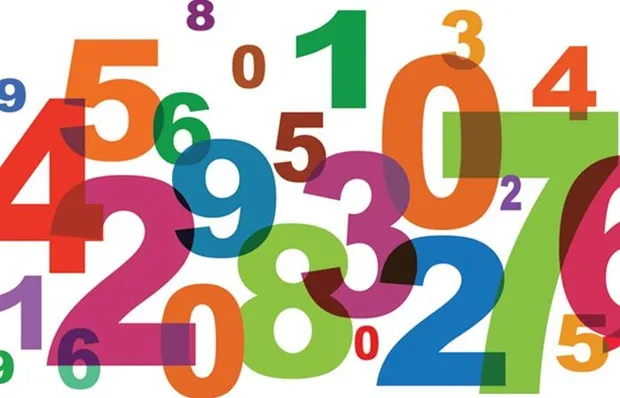“The entire history of the human race, the rise of man from the caves, has been marked by transfers of cultural advances from one group to another and from one civilization to another.”
So said economist, social philosopher, and historian Thomas Sowell in a 1990 speech titled “Cultural Diversity.” (Watch it here. I also recommend this lecture by Nigel Biggar.) By cultural diversity Sowell did not mean the still-fashionable sense of that term. He has in mind what might be called culture without romance, echoing James Buchanan and the Public Choice school’s economics without romance. What does Sowell mean?
Paper and printing, for example, are today vital parts of Western civilization–but they originated in China, centuries before they made their way to Europe. So did the magnetic compass, which made possible the great ages of exploration that put the Western Hemisphere in touch with the rest of mankind. Mathematical concepts likewise migrated from one culture to another: Trigonometry from ancient Egypt and the whole numbering system now used throughout the world originated among the Hindus of India, though Europeans called this system Arabic numerals because it was the Arabs who were the intermediaries through which these numbers reached medieval Europe. Indeed, much of the philosophy of ancient Greece first reached Western Europe in Arabic translations, which were then re-translated into Latin or into the vernacular languages of the West Europeans.
That shines a different light on how many people think of Western culture. It is something that the cultural anti-immigrationists seem completely ignorant of. Setting out to protect from change a culture that is a product of centuries of unplanned and spontaneous cultural imports seems strange indeed.
Sowell’s point is also a blow to the woke warriors. In light of what he’s saying, we have no choice but to pronounce the purported crime of cultural appropriation pernicious nonsense. As someone said, the history of man is a history not of cultural appropriation but rather of cultural appreciation. Thank goodness for that.
“Much that became part of the culture of Western civilization,” Sowell continued, “originated outside that civilization, often in the Middle East or Asia.” (Emphasis added.) Imagine that!
The game of chess came from India, gunpowder from China, and various mathematical concepts from the Islamic world, for example. The conquest of Spain by Moslems in the eighth century, A.D., made Spain a center for the diffusion into Western Europe of the more advanced knowledge of the Mediterranean world and of the Orient in astronomy, medicine, optics, and geometry. The later rise of Western Europe to world pre-eminence in science and technology built upon these foundations, and then the science and technology of European civilization began to spread around the world, not only to European offshoot societies such as the United States or Australia, but also to non-European cultures, of which Japan is perhaps the most striking example.
Sowell then drew an inference that today gets him in trouble with some people: “The historic sharing of cultural advances, until they became the common inheritance of the human race, implied much more than cultural diversity. It implied that some cultural features were not only different from others but better than others.” (Emphasis in original.)
Better? Oh my! Are you allowed to say that? Won’t that hurt some people’s feelings, especially those of some prominent well-paid Western intellectuals? Sowell then showed what a good praxeologist he is by employing the tools of purposeful human action:
The very fact that people—all people, whether Europeans, Africans, Asians, or others—have repeatedly chosen to abandon some feature of their own culture, in order to replace it with something from another culture, implies that the replacement served their purposes more effectively….”
Example: “Arabic numerals are not simply different from Roman numerals; they are better than Roman numerals.” How can we know this?
This is shown by their replacing Roman numerals in many countries whose own cultures derived from Rome, as well as in other countries whose respective numbering systems were likewise superseded by so-called Arabic numerals.
It is virtually inconceivable today that the distances in astronomy or the complexities of higher mathematics should be expressed in Roman numerals. Merely to express the year of American independence–MDCCLXXVI–requires more than twice as many Roman numerals as Arabic numerals. Moreover, Roman numerals offer more opportunities for errors, as the same digit may be either added or subtracted, depending on its place in the sequence. Roman numerals are good for numbering kings or Super Bowls but they cannot match the efficiency of Arabic numerals in most mathematical operations—and that is, after all, why we have numbers at all.
But doesn’t “our” culture—out of respect for our ancestors—deserve preservation by the state? Tradition! Sowell isn’t buying it.
Cultural features do not exist merely as badges of “identity,” to which we have some emotional attachment. They exist to meet the necessities and forward the purposes of human life. When they are surpassed by features of other cultures, they tend to fall by the wayside, or to survive only as marginal curiosities, like Roman numerals today. [Emphasis added.]
He elaborates:
Cultures exist so that people can know how to get food and put a roof over their head, how to cure the sick, how to cope with the death of loved ones, and how to get along with the living. Cultures are not bumper stickers. They are living, changing ways of doing all the things that have to be done in life. [Emphasis added.]
It’s common sense: “Every culture discards over time the things which no longer do the job or which don’t do the job as well as things borrowed from other cultures. Each individual does this, consciously or not, on a day to day basis.” (Emphasis added.)
Languages take words from other languages, so that Spanish as spoken in Spain includes words taken from Arabic, and Spanish as spoken in Argentina has Italian words taken from the large Italian immigrant population there. People eat Kentucky Fried Chicken in Singapore and stay in Hilton hotels in Cairo.
But in 1990, like today, “This is not what some of the advocates of ‘diversity’ have in mind.”
They seem to want to preserve cultures in their purity, almost like butterflies preserved in amber. Decisions about change, if any, seem to be regarded as collective decisions, political decisions. But that is not how any cultures have arrived where they are. Individuals have decided for themselves how much of the old they wished to retain, how much of the new they found useful in their own lives. In this way, cultures have enriched each other in all the great civilizations of the worlds.
De-romanticizing culture could be a big step toward junking illiberal and demoralizing identity politics and so-called social justice.

































